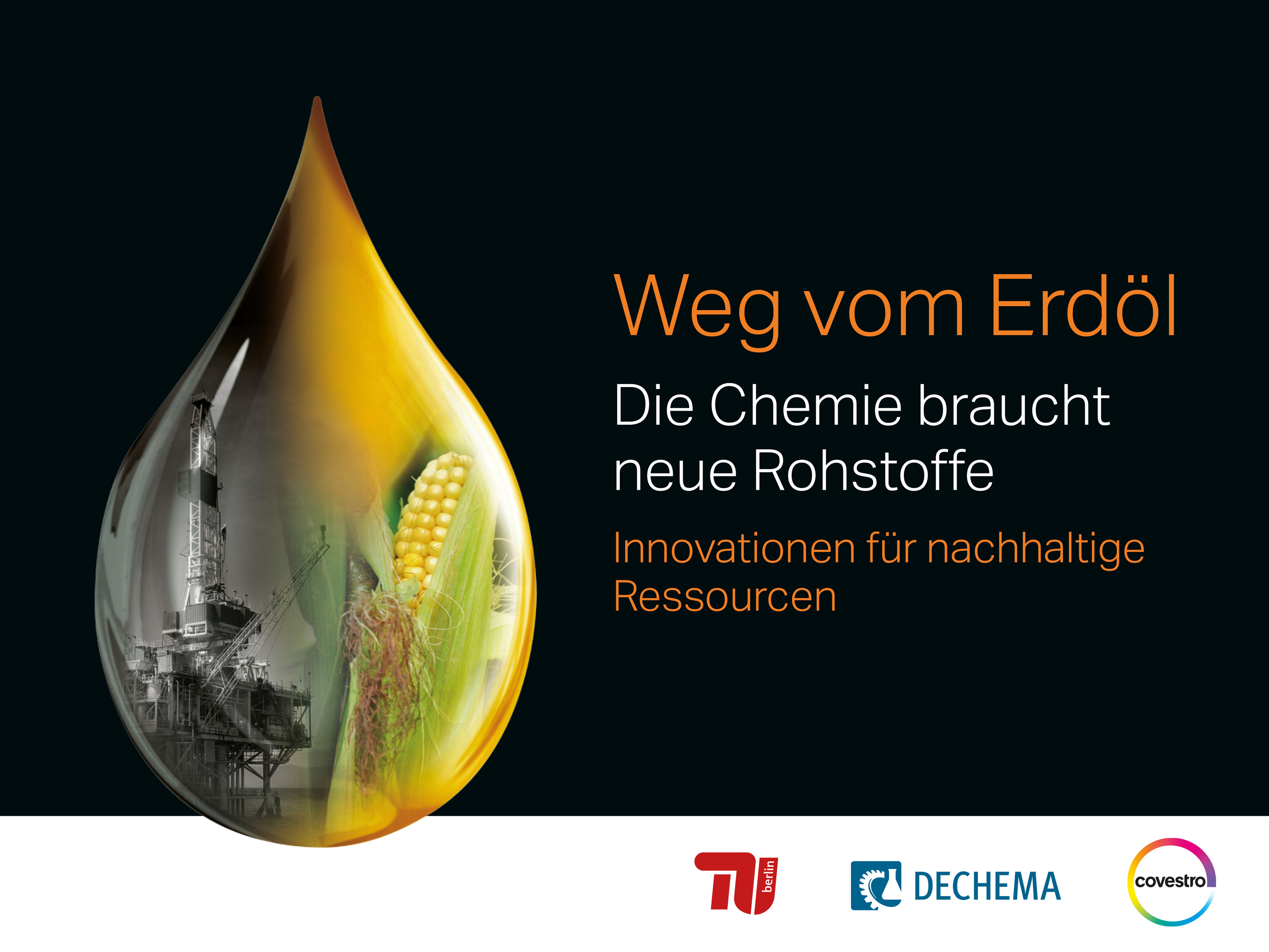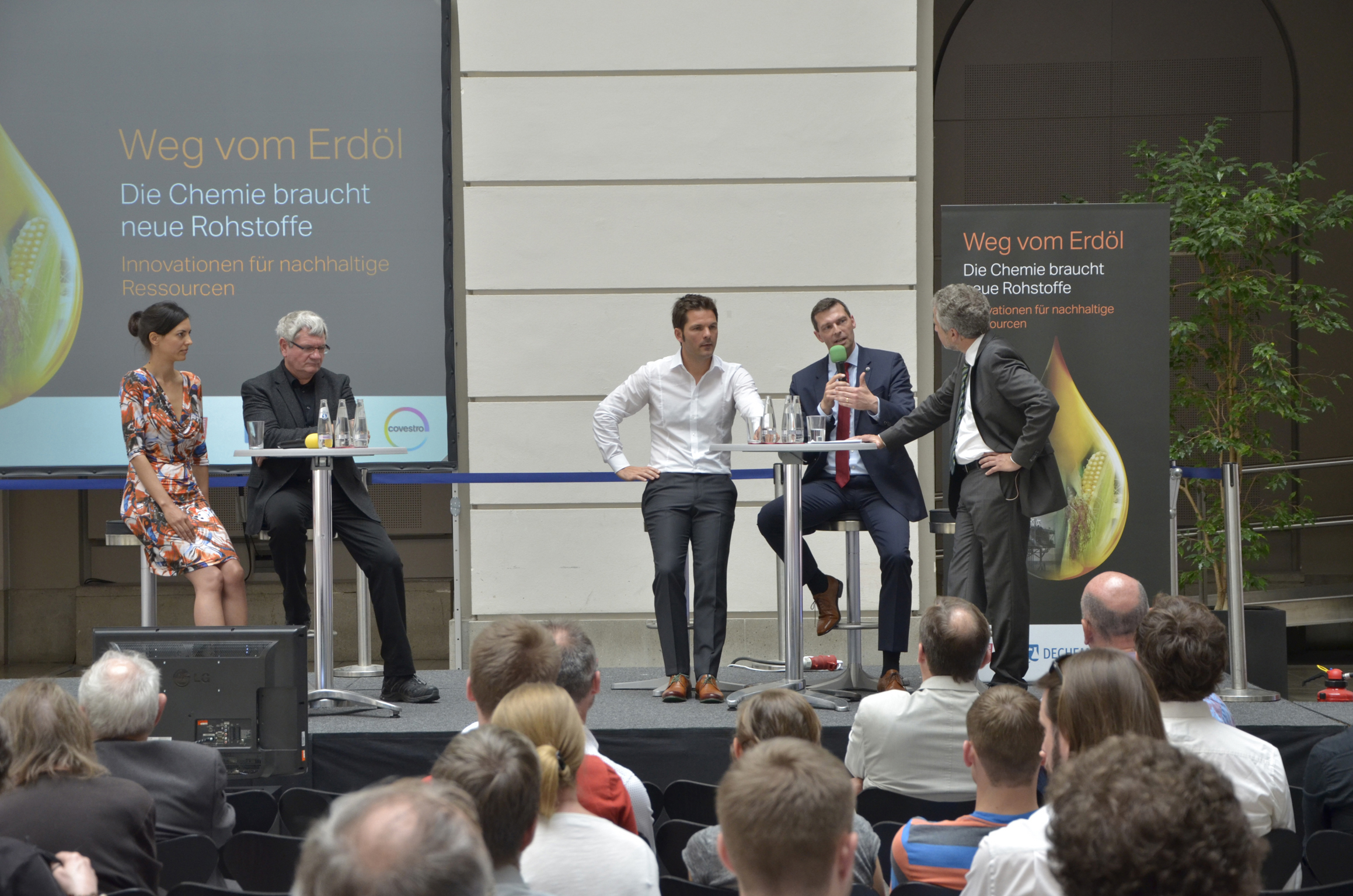
According to experts, the chemical industry needs to increase the use of sustainable raw materials such as plants and CO2 to conserve limited fossil resources. Participants of a raw material summit held on Tuesday at the Technical University of Berlin and organized in collaboration with DECHEMA (German Society for Chemical Engineering and Biotechnology) and the materials manufacturer Covestro called for more joint efforts in this area. Representatives of the political, scientific and business spheres pointed out that there are numerous promising approaches for producing chemical products virtually without petroleum.

In the view of the summit participants, Germany has a leading role to play in this area, also thanks to public funding, a role that needs to be expanded. The full innovation potential has not yet been exploited, however. "Above all, it is important to quickly implement good ideas. That’s why the start-up culture has to be encouraged in the chemical industry in particular," summed up DECHEMA Managing Director Kurt Wagemann, who held a keynote address and chaired the main panel discussion.
Ideas competition with international start-ups
An ideas competition held at the event served as a signal for promoting an increased start-up culture. Five start-up companies from the United States, United Kingdom, the Netherlands and Germany presented to the audience projects in which biomass and CO2 are used instead of petroleum as alternative sources of carbon. Three of them were awarded the accolade of Resource Innovator 2017 and received prize-money donated by Covestro.
Alongside Professor Wagemann, the panel of five judges comprised Professor Reinhard Schomäcker from the Institute for Chemistry of TU Berlin, Dr. Markus Steilemann, Chief Commercial Officer at Covestro, Professor Robert Schlögl, Director at the Fritz Haber-Institute of the Max Planck Society, and Sonja Jost, Managing Director of the chemical company DexLeChem.
From idea to implementation
Also taking part in the subsequent panel discussion was Steffen Krach, State Secretary for Science and Research in the Senate Chancellery of the Governing Mayor of Berlin. Krach said: "Berlin is Germany’s start-up capital. We want to even improve the general framework." Professor Schlögl complained about a missing willingness to take risks. More technology centers are essential to make it from the idea to the implementation.
According to Jost, the summit showed that the megatrends and future topics of digitalization and sustainability already dominate the chemical industry. "Our solutions are generating completely new types of green business opportunities", she said.
Steilemann pointed out how important and fruitful cooperation between research-based companies and application-oriented academia is. "Such cooperation has enabled Covestro to rapidly develop and launch the first CO2-based products on the market."
TU Professor Schomäcker also strongly favored the expansion of cooperation especially within the academic sphere to drive research forward in a focused way. He cited the UniCat excellence cluster as an example, which brings together scientists and engineers from various universities and institutes in the Berlin area and creates synergies.
About the Technical University of Berlin:
The internationally renowned Technische Universität Berlin (TU Berlin) is located in Germany’s capital city at the heart of Europe. With almost 34,500 students, around 120 course offerings and 40 institutes, TU Berlin is one of Germany’s largest technical universities. Apart from the main campus in central Berlin, there are further sites across the city of Berlin and a satellite campus in El Gouna, Egypt. The university’s academic activities are focused on achieving four sharply-defined goals: building a distinctive profile for the university, ensuring exceptional performance in research and teaching, providing graduates with excellent qualifications and a modern approach to university administration. Strong regional, national and international networking with partners in science and industry are an important aspect in these endeavors. TU Berlin is the only university in Germany’s capital region offering engineering subjects, but the range of services offered by its seven faculties serves to forge a unique link between the natural and technical sciences on the one hand, and the planning, economics and social sciences and humanities on the other.
About Covestro:
With 2016 sales of EUR 11.9 billion, Covestro is among the world’s largest polymer companies. Business activities are focused on the manufacture of high-tech polymer materials and the development of innovative solutions for products used in many areas of daily life. The main segments served are the automotive, construction, wood processing and furniture, and electrical and electronics industries. Other sectors include sports and leisure, cosmetics, health and the chemical industry itself. Covestro, formerly Bayer MaterialScience, has 30 production sites around the globe and employs approximately 15,600 people (full-time equivalents) as of the end of 2016.
For more more information please visit http://www.covestro.com.






